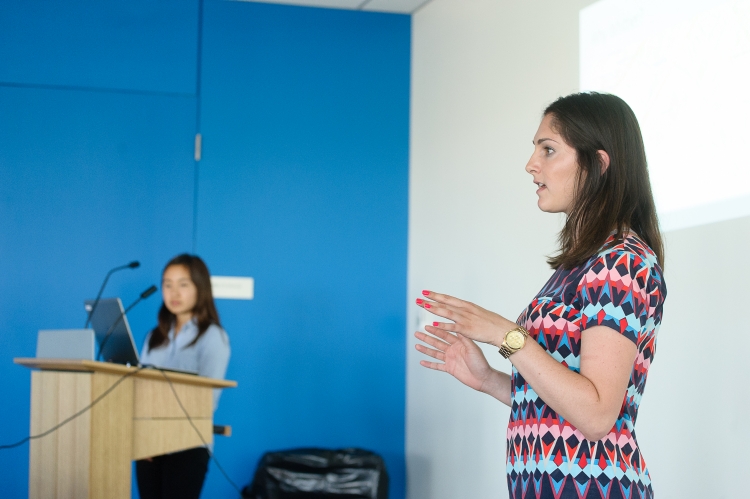
By
With the academic year under way, the Carroll School of Management’s Joseph E. Corcoran Center for Real Estate and Urban Action is gearing up for the next phase of its young life with a new director, a new faculty member, and new classes in place.
Founded to educate and inspire the next generation of professionals to use real estate as a catalyst for turning struggling neighborhoods into stable, flourishing communities, the center – guided by the Jesuit ideal of “men and women for others” – is named for benefactor Joseph Corcoran ’59, a pioneering real estate developer.
Since the Corcoran Center’s inauguration last fall, the Carroll School has hired Neil McCullagh, former executive director of The American City Coalition (TACC) and long-time economic development leader, as the center’s director and Ed Chazen – who spent 28 years in the real estate sector as a private equity investor and 14 years teaching at the graduate level – as a senior lecturer.
The center also launched an internship program, placing 16 Boston College students in government, non-profit, and private sector organizations across Boston, including the Boston Housing Authority, the City of Boston’s Department of Neighborhood Development and Preservation of Affordable Housing, and multiple economic development agencies.
“In the last eight months, it’s been very busy,” sums up McCullagh. “I hope that we are going to be able to develop professionals who understand real estate is an incredibly transformational tool – a platform for social change that can be employed in neighborhoods with the highest concentrations of poverty. These students have every opportunity to become powerful agents of social change.”
“Students are drawn to this work, and also learn that there is a great opportunity to apply their knowledge to solving significant urban problems,” adds Chazen, who has taught at Boston University, Babson College and, most recently, at Brandeis International Business School.
One model for real estate as a means to social change, McCullagh notes, is Joseph Corcoran’s successful effort to revitalize Dorchester’s crime-ridden Columbia Point housing project by creating Harbor Point, a widely praised housing development where low-income families live side-by-side with middle-class families. His accomplishment is the basis for the course Real Estate and Urban Action, which has been taught at Boston College for the past five years.
McCullagh, who is also one of the original class instructors, said the course exemplifies the center’s mission, challenging students “to understand and analyze a neighborhood, and develop a new housing concept that will advance positive transformation in a high-need neighborhood. They meet experts from related fields and work in teams to develop plans, including analysis of social service needs, job creation opportunities and community partnerships. They’ll look at all aspects of the development and then present thoughtful, creative, and actionable plans for how to work with the community to transform the neighborhood.”
Now, the center will build on the lessons of the Corcoran experience by offering a slate of new classes, including two debuting this semester, Real Estate Finance and Fundamentals of Real Estate. Also in the works are a Real Estate Development Course and a semester-long Real Estate Field Projects class, in which students undertake a real-world consulting project for a real estate company or public agency. More than 60 students have enrolled in the classes thus far.
Adds Chazen, “Our goal is to teach students solid real estate analytical skills -– in acquisitions, development, financing and market research -– and encourage them to apply this knowledge to revitalizing urban neighborhoods. We want them to see where real estate has transformed communities, see the roles of all the different stakeholders – the community, the government agencies, the financing sources – and understand that real estate can play an important role in improving living conditions for people.
“At the undergraduate level, I’m not aware of any school in the Boston area that has anything even close to this commitment,” he says.
Along with classes and internships, the center will host two speakers each semester, and sponsor at least two larger-scale events each year spotlighting innovations in the field of real estate and neighborhood revitalization to the Boston College community. The center also is collaborating with the undergraduate Real Estate Club to host a workshop in Argus, the primary software used by the real estate industry for financial analysis.
For more information about the Joseph E. Corcoran Center for Real Estate and Urban Action, see www.bc.edu/schools/csom/research/realestate.html.



